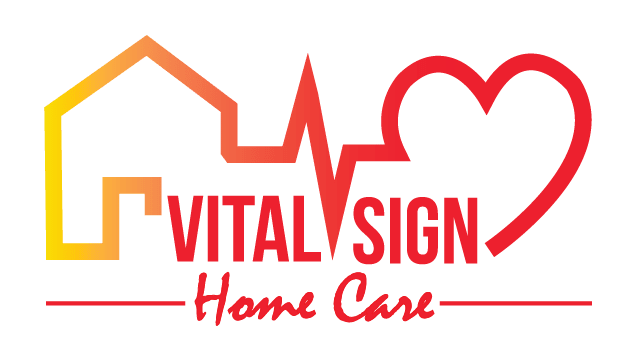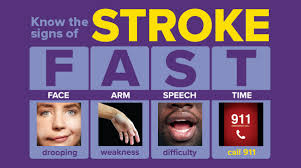
May is Stroke Awareness Month, and as such, we thought it was fitting to educate our readers on some of the effects of strokes, especially on the elderly.
Strokes happen when the blood flow through the brain changes. When blood flow to the brain cells is disrupted, the brain does not receive enough oxygen to function correctly. If the brain cells are deprived of oxygen for a short period of time, they may recover. However, the longer the cells are deprived of oxygen, the harder the recovery may be.
According to the Eunice Kennedy Shriver National Institute of Child Health and Human Development, approximately 795,000 people in the United States have strokes each year, with 137,000 of these incidents resulting in death.
Keeping up to date with the signs of a stroke can help a caregiver act quickly and acting swiftly can make a huge difference in how a stroke affects the elderly. Here are some warning signs to look out for:
- Sudden vision problems in one or both eyes
- Dizziness, loss of balance or coordination, or difficulty walking
- Sudden severe headache with no discernible cause
- Sudden difficulty communicating or understanding others
- Unexpected weakness in the face, leg, or arm, particularly on one side of the body
If you think you or a loved one is having a stroke, dial 911 right away. If you are caring for a loved one who has had a stroke, the recovery process may appear overwhelming. It can be beneficial for caregivers to understand what has occurred, what to expect, the stages of stroke recovery, and how to find the proper support.

Stroke Effects on the Elderly
According to the National Institute on Aging, strokes are one of the leading causes of death and disability in the United States. Elderly patients are more likely to have a stroke in general and require a more extended hospital stay. In fact, 66 percent of hospitalized stroke patients are 65 or older.
Most patients will require six to twelve months of intensive rehabilitation to recover from a stroke. So, how many stroke patients recover entirely? Individuals differ in their ability to heal and the length of time it takes to recover. The quality of care a stroke patient receives is critical. Senior care communities provide patients with occupational, physical, and speech therapy services, which can significantly improve the chances of a successful recovery.
Helping Stroke Patients Make a Full Recovery
Everyone’s recovery from a stroke takes a different path. While the brain can regenerate and repair itself, many pieces must fall into place. This makes it difficult for even trained experts to provide a precise timeline for recovery.
At Vital Sign Home Care, we understand that a safe, positive, and supportive environment is one of the most essential tools for recovery. There are numerous care paths from which a family can choose when determining the appropriate level of support for their loved one. Among the options are:
- Care at home with family members
- Home care on one’s own
- Rehabilitation in the community
- Rehabilitation in nursing homes
- Inpatient treatment
Inpatient rehab communities and skilled nursing care facilities have a high success rate in supporting stroke patients. Before choosing a post-hospitalization care plan, it is critical to discuss these options with the hospital team. Regardless of location, the most important aspects of recovery are a positive attitude and dedication.
Venus had a stroke in 2018, she had no movement on the right side of her body and was unable to speak. Venus has made great progress since then and shows up everyday doing her best. She takes pride in overcoming obstacles and never giving up, which has allowed her to obtain a level of success in healthcare.
- How Home Care Can Empower a Senior with Parkinson’s - April 15, 2024
- Ways Home Care Assistance Helps Seniors Who Have Hearing Loss - April 2, 2024
- An Uninjured Veteran May Qualify for Financial Aid for Home Care - March 18, 2024

